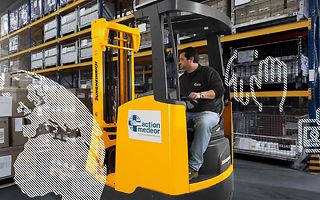-
About usAbout us
Startpage
-
Our profile
About us
-
Our management
About us
-
Our strategy
About us
-
Our story
About us
-
Our service portfolio
About us
-
Our awards
About us
- Our purchase
-
Jungheinrich worldwide
About us
-
Our profile
-
CareerCareer
Startpage
-
Investor relationsInvestor relations
Startpage
-
Our share
-
Notifications
Investor relations
-
Annual Report 2024
Investor relations
-
Reports and presentations
Investor relations
- Annual General Meeting 2025
- Corporate governance
-
Refinancing
Investor relations
-
Financial calendar
Investor relations
-
Our share
-
SustainabilitySustainability
Startpage
-
How we make material handling sustainable
Sustainability
-
How we protect the climate
Sustainability
-
How we promote the circular economy
Sustainability
-
How we take social responsibility
-
How we create transparent supply chains
Sustainability
-
Our policy and certificates
-
How we make material handling sustainable
-
NewsroomNewsroom
Startpage
-
Press releases
Newsroom
-
Jungheinrich Blog
Newsroom
-
Media Center
Newsroom
-
Annual press conference
Newsroom
-
Media contacts
Newsroom
-
Press releases




